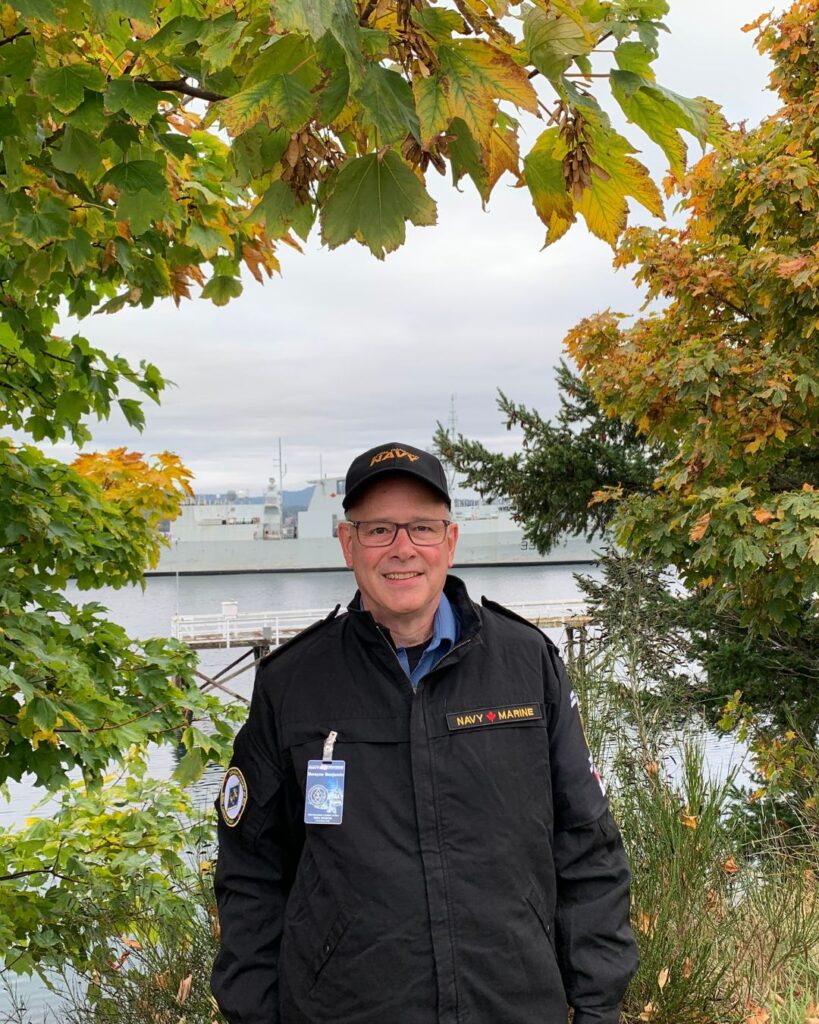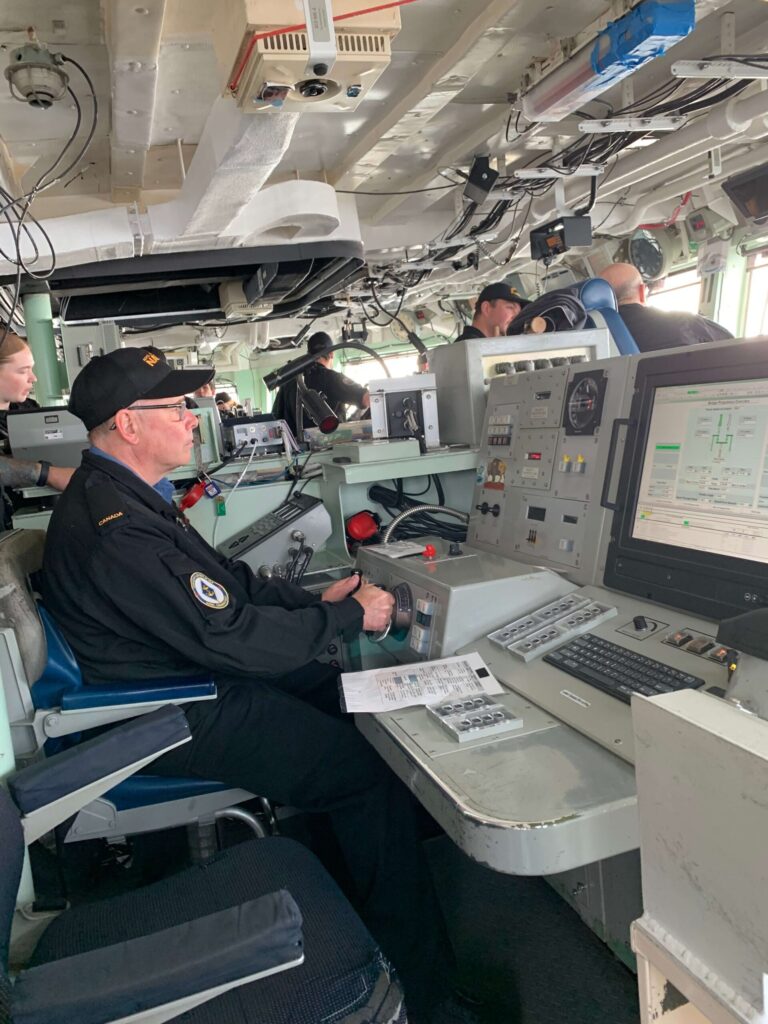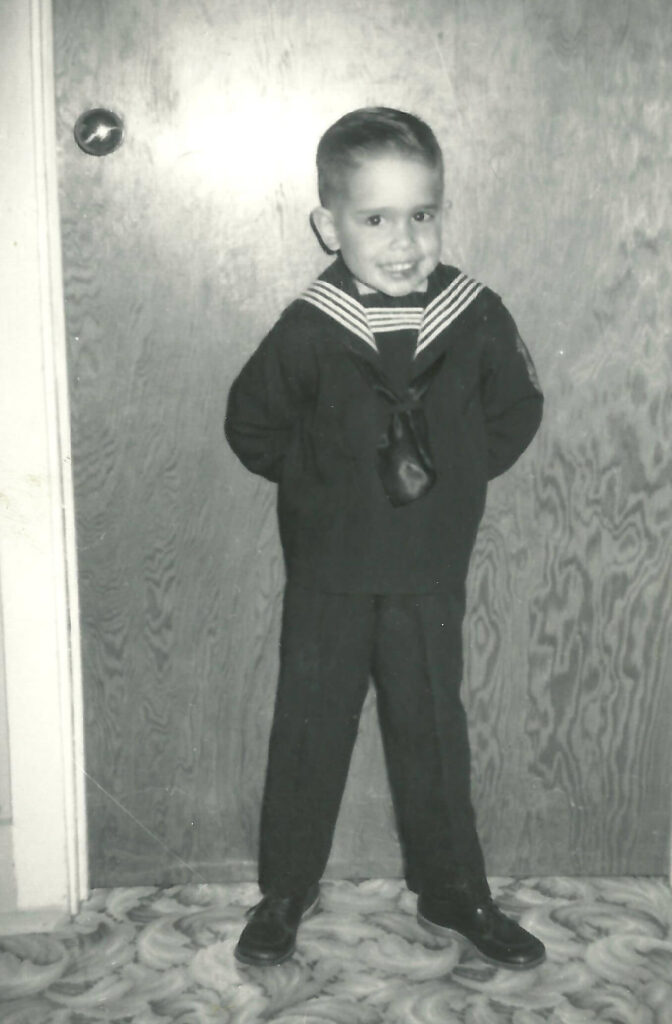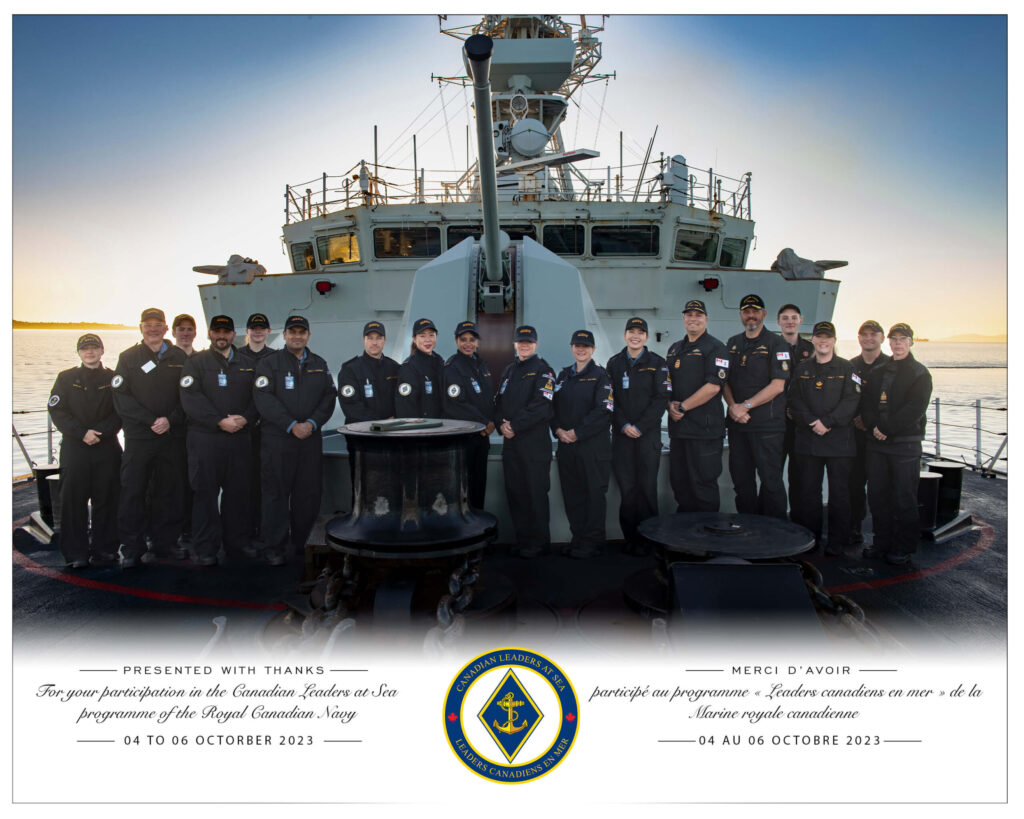Learning isn’t just for Land: Canadian Leaders at Sea (CLaS)
Learning isn’t just for Land:
Canadian Leaders at Sea (CLaS)

Last month I had the privilege of participating in the Canadian Leaders at Sea (CLaS) program aboard the HMCS Winnipeg, a frigate based out of CFB Esquimalt, sailing two days off the coast of Vancouver Island. CLaS is an outreach program of the Royal Canadian Navy (RCN) with a primary objective of increasing awareness of Canada’s Navy. In addition to outreach, a current emphasis of CLaS is to promote recruitment and employment opportunities in the Navy. In alignment with this, joining me onboard were nine other participants, most of whom were also drawn from the education sector, and including our U of T colleague Rhonda McEwan, President of Victoria University. We were also fortunate to be joined by Rear Admiral Chris Robinson, commander of Maritime Forces Pacific.
While onboard, we bunked in regular crew quarters and ate in various messes, spending time variously talking with sailors and officers from a range of naval occupations and roles. We were offered in-depth tours of different parts of the ship and participated in demonstrations of critical ship operations (e.g., damage control, firefighting, navigation, person overboard, naval warfare, a helicopter flypast, communications, radar).
In terms of “hands on” experiences, we had an opportunity to steer the ship through fast manoeuvres and received firearms training. At a higher level, we also learned about the role of Canada’s Navy.

Dwayne at the Controls
Admiral Robinson explained the general problem of “maritime blindness” that navies try to overcome: Most of us live in cities with little experience or understanding of the importance of oceans to our day to day lives.
The RCN serves three broad functions in support of Canadian security:
1) A constabulary role, for example working with Coast Guard and other international services to enforce domestic and international law;
2) A diplomatic role, visiting ports of call around the world and promoting Canadian values abroad; and
3) A military defence role if hostilities were to evert break out (though deterrence is Plan A).
Frigates like HMCS Winnipeg are the backbone of the RCN. Indeed, HMCS Winnipeg had just returned from three years’ service in the Pacific, including a considerable time in the Indo-Pacific region, and our sail was her last before a long overdue period in drydock for overhaul and refit. The focus of the ship and her crew over the last few months has been training new sailors and officers as part of force regeneration and rebuilding the RCN.
This opportunity was a dream come true for me: I grew up in a military family (my father was in the RCAF), and all the uncles and two aunts on my mother’s side had served in various branches of the “services,” including the army (in WWII), merchant marine (in WWII), navy, and air force. I spent most of my youth trying to decide which branch I would join, with the Navy at the top of my list. In the end I chose U of T over RMC, and Economics over the Navy, but CLaS offered a taste of my counterfactual life and an opportunity to witness a modern version of the sea stories that my Uncle Cecil shared from his career in the Navy (some of which may even have been true).
While I expected it would be cool to spend time on a modern frigate, what struck me most were the people: The women and men serving in Canada’s navy are impressive. They were friendly, open and frank about the challenges, but optimistic about the future. Their dedication and professionalism were especially striking: They spend months at sea with very few breaks, working non-stop. It was also interesting to see the parallels with our own VPSEM work: recruitment and retention of talent, especially trying to reach young people of high school and university age, offering training and human capital that can be used within the Navy and beyond.


There was also a deep commitment to improving diversity and creating an inclusive environment. This was especially apparent with the number of women officers and sailors (about 20%) as well as the growing demographic diversity of the younger sailors.
Especially given that most Canadians live in cities like Toronto and many were born outside Canada with little familiarity with Canadian history or institutions, the success of the Navy depends on their being able to tap into talent in these cities and engage young people with the vision and opportunities afforded by the RCN. The motto of the RCN is “Ready, aye, ready” reflecting a dedication to service to Canada. It was evident to me that this was engraved into the ethic of the officers and sailors in the RCN and it was an honor to have been hosted by them.
